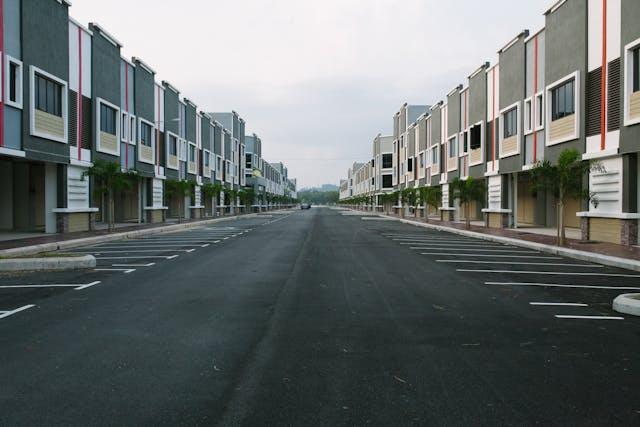ON Tuesday, November 6, in addition to candidates for state and local positions, voters in California will also decide on 11 statewide ballot propositions. There were originally 12, but Proposition 9 was removed from the ballot by the California Supreme Court. It had proposed splitting California into three different states. During the June 5 primary, four measures were approved while one was defeated.
Here’s a guide to the 11 propositions on the ballot and what a “yes” or “no” would mean:
Proposition 1: Bond for veterans, affordable housing
This would authorize $4 billion in general obligation bonds for existing affordable housing programs for low-income residents, veterans, farmworkers, manufactured and mobile homes, infill, and transit-oriented housing. Fiscal Impact: Increased state costs to repay bonds averaging about $170 million annually over the next 35 years.
A YES vote means: Allows the state to sell $4 billion in general obligation bonds to fund veterans and affordable housing.
A NO vote means: The state could not sell $4 billion in general obligation bonds to fund veterans and affordable housing.
Proposition 2: Bond for housing for those with mental illness
This would amend the Mental Health Services Act to fund No Place Like Home Program, which finances housing for individuals with mental illness. Ratifies existing law establishing the No Place Like Home Program. Fiscal Impact: Allows the state to use up to $140 million per year of county mental health funds to repay up to $2 billion in bonds. These bonds would fund housing for those with mental illness who are homeless.
A YES vote means: The state could use existing county mental health funds to pay for housing for those with mental illness who are homeless.
A NO vote means: The state’s ability to use existing county mental health funds to pay for housing for those with mental illness who are homeless would depend on future court decisions.
Proposition 3: Bonds for infrastructure projects
This would give $8.877 billion in state general obligation bonds for various infrastructure projects. Fiscal Impact: Increased state costs to repay bonds averaging $430 million per year over 40 years. Local government savings for water-related projects, likely averaging a couple hundred million dollars annually over the next few decades.
A YES vote means: The state could sell $8.9 billion in general obligation bonds to fund various water and environmental projects.
A NO vote means: The state could not sell $8.9 billion in general obligation bonds to fund various water and environmental projects.
Proposition 4: Grants for children’s hospitals
This would allow $1.5 billion in bonds, to be repaid from state’s General Fund, to fund grants for construction, expansion, renovation, and equipping of qualifying children’s hospitals. Fiscal Impact: Increased state costs to repay bonds averaging about $80 million annually over the next 35 years.
A YES vote means: The state could sell $1.5 billion in general obligation bonds for the construction, expansion, renovation, and equipping of certain hospitals that treat children.
A NO vote means: The state could not sell the $1.5 billion in general obligation bonds proposed for these purposes.
Proposition 5: Expand tax benefit for certain homeowners
This would remove certain transfer requirements for homeowners over 55, severely disabled homeowners, and contaminated or disaster-destroyed property. Fiscal Impact: Schools and local governments each would lose over $100 million in annual property taxes early on, growing to about $1 billion per year. Similar increase in state costs to backfill school property tax losses.
A YES vote means: All homeowners who are over 55 (or who meet other qualifications) would be eligible for property tax savings when they move to a different home.
A NO vote means: Certain homeowners who are over 55 (or who meet other qualifications) would continue to be eligible for property tax savings when they move to a different home.
Proposition 6: Repeal gas tax
This would repeal a 2017 transportation law’s taxes and fees designated for road repairs and public transportation. Fiscal Impact: Reduced ongoing revenues of $5.1 billion from state fuel and vehicle taxes that mainly would have paid for highway and road maintenance and repairs, as well as transit programs.
A YES vote means: Fuel and vehicle taxes recently passed by the Legislature would be eliminated, which would reduce funding for highway and road maintenance and repairs, as well as transit programs. The Legislature would be required to get a majority of voters to approve new or increased state fuel and vehicle taxes in the future.
A NO vote means: Fuel and vehicle taxes recently passed by the Legislature would continue to be in effect and pay for highway and road maintenance and repairs, as well as transit programs. The Legislature would continue not to need voter approval for new or increased state fuel and vehicle taxes in the future.
Proposition 7: Changing daylight saving time
The Legislature would have to ability to change daylight saving time period by two-thirds vote, if changes are consistent with federal law. Fiscal Impact: This measure has no direct fiscal effect because changes to daylight saving time would depend on future actions by the Legislature and potentially the federal government.
A YES vote means: The Legislature, with a two-thirds vote, could change daylight saving time if the change is allowed by the federal government. Absent any legislative change, California would maintain its current daylight saving time period (early March to early November).
A NO vote means: California would maintain its current daylight saving time period.
Proposition 8: Regulating kidney dialysis clinics
This would regulate the amounts outpatient kidney dialysis clinics charge for dialysis treatment. It would also require rebates and penalties if charges exceed limit and annual reporting to the state. Simultaneously, clinics would be prohibited from refusing to treat patients based on payment source. Fiscal Impact: Overall annual effect on state and local governments ranging from net positive impact in the low tens of millions of dollars to net negative impact in the tens of millions of dollars.
A YES vote means: Kidney dialysis clinics would have their revenues limited by a formula and could be required to pay rebates to certain parties (primarily health insurance companies) that pay for dialysis treatment.
A NO vote means: Kidney dialysis clinics would not have their revenues limited by a formula and would not be required to pay rebates.
Proposition 10: Repealing rent control restrictions
This would repeal state law that currently restricts the scope of rent control policies that cities and other local jurisdictions may impose on residential property. Fiscal Impact: Potential net reduction in state and local revenues of tens of millions of dollars per year in the long term. Depending on actions by local communities, revenue losses could be less or considerably more.
A YES means: State law would not limit the kinds of rent control laws cities and counties could have.
A NO vote means: State law would continue to limit the kinds of rent control laws cities and counties could have.
Proposition 11: Private ambulance employees on call during breaks
Law entitling hourly employees to breaks without being on-call would not apply to private-sector ambulance employees. Fiscal Impact: Likely fiscal benefit to local governments (in the form of lower costs and higher revenues), potentially in the tens of millions of dollars each year.
A YES vote means: Private ambulance companies could continue their current practice of having emergency medical technicians (EMTs) and paramedics stay on-duty during their meal and rest breaks in order to respond to 911 calls. Private ambulance companies would attempt to reschedule meal and rest breaks that are interrupted by a 911 call.
A NO vote means: Private ambulance companies would be subject to labor laws for this industry. Based on a recent court decision, these laws likely would require ambulance companies to provide EMTs and paramedics with off-duty meal and rest breaks that cannot be interrupted by a 911 call.
Proposition 12: Standards for farm animal confinement
This establishes minimum requirements for confining certain farm animals, and prohibits sales of meat and egg products from animals confined in noncomplying manner. Fiscal Impact: Potential decrease in state income tax revenues from farm businesses, likely not more than several million dollars annually. State costs up to $10 million annually to enforce the measure.
A YES vote means: There would be new minimum requirements on farmers to provide more space for egg-laying hens, breeding pigs, and calves raised for veal. California businesses would be banned from selling eggs or uncooked pork or veal that came from animals housed in ways that did not meet these requirements.
A NO means: Current minimum space requirements for confining egg-laying hens, pregnant pigs, and calves raised for veal would continue to apply. Current ban on businesses in California selling eggs not meeting these space requirements for hens would remain in effect.






